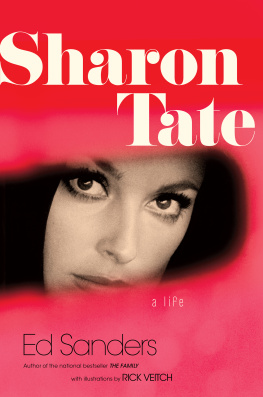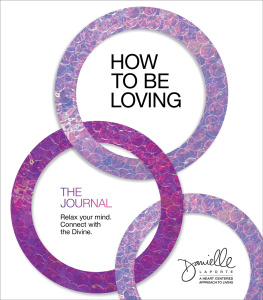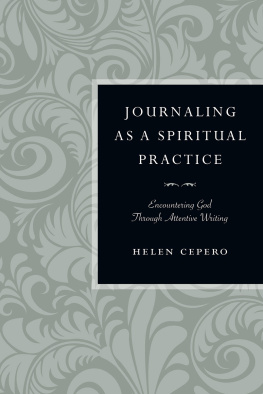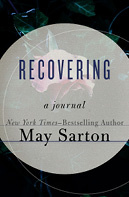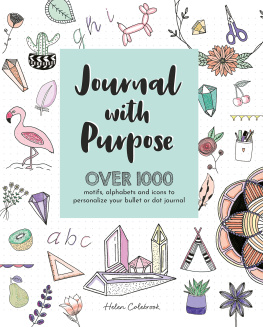The Journal Keeper
ALSO BY PHYLLIS THEROUX:
California and Other States of Grace: A Memoir
Peripheral Visions
Night Lights: Bedtime Stories for Parents in the Dark
The Book of Eulogies
Serefina Under the Circumstances
Giovannis Light
The Journal Keeper
A MEMOIR
PHYLLIS THEROUX

Copyright 2010 by Phyllis Theroux
All rights reserved. No part of this book may be reproduced in any form or by any electronic or mechanical means, including information storage and retrieval systems, without permission in writing from the publisher, except by a reviewer, who may quote brief passages in a review. Scanning, uploading, and electronic distribution of this book or the facilitation of such without the permission of the publisher is prohibited. Please purchase only authorized electronic editions, and do not participate in or encourage electronic piracy of copyrighted materials. Your support of the authors rights is appreciated. Any member of educational institutions wishing to photocopy part or all of the work for classroom use, or anthology, should send inquiries to Grove/Atlantic, Inc., 841 Broadway, New York, NY 10003 or permissions@groveatlantic.com.
Published simultaneously in Canada
ISBN-13: 978-0-8021-9793-1 (e-book)
Atlantic Monthly Press
an imprint of Grove/Atlantic, Inc.
841 Broadway
New York, NY 10003
Distributed by Publishers Group West
www.groveatlantic.com
For R
Contents
Living in a small town is like being in a play
One of the strongest illusions is that another persons love will liberate us
It is consoling to think, if I am not always looking for God, that God is nevertheless looking for me
The notion of not wanting to be in charge of my own life interests me now that I feel I am
We shape our lives like a story
I wonder if the process of aging doesnt bring as its chief gift the capacity to separate our intellect from from our feelings
The Journal Keeper
Introduction
In 1972, after our third and last child was born, we moved from a small frame house in Washington, D.C., into a gigantic frame house farther toward the edge of town. It was the house of my dreams, with seven bedrooms (the family moving out had raised eleven children there), a cozy kitchen, and a front window that looked out onto a 1950s-era neighborhood full of big trees and little children sucking popsicles as they whizzed down the street on their bicycles. As I stood in the front hall and mentally plugged in the Christmas tree, I knew I could spend the rest of my life here. What I didnt know was that the rest of my life was about to end.
Or did I? Looking back, there were signs, some of them quite large. But I wasnt interested in reading them. I wasnt interested in doing anything but working and reworking the classic Vogue pattern I had chosen for my life until it fit correctly. Step One: Get married. Step Two: Have children. Step Three: ... This was the one that was giving me trouble.
A block away was a large park. On weekday mornings it was full of women like me, with downtown husbands who made our uptown lives possible. As they sat around the sand-box balancing their checkbooks or absentmindedly pushed toddlers on swings, I would search their smooth, pretty faces for clues. Were they happy, unhappy? Were they having trouble with Step Three, too? I couldnt tell. We were all so young that there were no lines on our faces to read between.
At night, after the children were asleep, I would sometimes slip out of the house and walk up to the park to be alone with my thoughts. In the dark, the houses on the perimeter of the playground looked like a stage set for Thornton Wilders Our Town. Lying on the grass and looking up at the stars, I would listen to the muffled sounds coming through raised windows and match them up with scenes inside: someone playing with a dog, a joke-filled dinner party, a couple doing the dishes while they chatted about their childrens report cards. The coziness of their lives filled me with longing.
In my own house, there were no scenes of any kind. Not even arguments. And the only sounds, apart from those of my children, were in my own heador journal. Once, years later, I made the mistake of cracking one of them open. Out spilled the sighs and cries of my life as fresh as the day I had recorded them. I slammed it shut.
My earliest journalsa stenographers notepad, a student composition book, an accountants ledgerhave a haphazard, impermanent look to them, as if I wasnt quite committed to the practice. I would grab whatever was nearest at hand to record my thoughts. Months go by without any entries. Often, I neglected to date them. The only consistent thread is my handwriting, taught by nuns with Esterbrook pens and calligraphy nibs. No matter how stormy the material, the words flow calmly and precisely across the page.
There were times when I poured my heart out. But other parts of my journals are quite different and dry-eyed. I note conversations overheard on airplanes, the way a beach looks at sunset, orindecipherable to me nowI scribble down wordsauthenticity, individuality, spectrum: old and newlike clues in search of a unifying theory. A unifying theory of any kind was hard to find.
In the decade of the seventies, Ms. magazine was launched, Erica Jong wrote Fear of Flying, and the future for women, which for my generation looked like a well-maintained golf course when we graduated from college, was now anything we could make of it as long as we could find a babysitter. Down the street, one neighbor was holding ballet classes for children in her basement. Another woman had started a morning preschool. I began to writeboth for myself and for publication. From the very beginning, my life and my writing were joined at the hip.
Shortly after we moved into the big house, I realized that it was not going to save me. One night, feeling restless, I got out of bed and went into a spare room off the porch where there was a desk and typewriter. Several hours later I got up and went back to bed. The next morning, I gathered up the pages that had fallen onto the floor and reread them. This is how it began:
Rocking slowly back and forth, pressing the worms in my chest against hunched-up knees. One little daughter banging for all shes worth against the front door. The baby, needing to be changed, crying in the backyard. A husband fixing the brakes on his bicycle on the patio. And I am rocking back and forth, not knowing where to place my hands, fix my gaze, or rest my soul.
This was a story about being caught in a life that I had been ill-advised on how to lead. Rolling the first page back into the typewriter, I gave it a title: Getting the Hang of It. Perhaps I could get it published, although my actual thoughts probably ran along the more commercial lines of maybe this would sell.
Manuscript in hand, I went down to the local drugstore and riffled through the magazine rack. My story was about a woman at home. Perhaps Ladies Home Journal matched it best. Writing the magazines New York editorial address on a large manila envelope, I slipped the story inside and mailed it off without making a copy.
Our lives swing helplessly upon the smallest actions of other people. Six weeks later, an editorial assistant at Ladies Home Journal decided to have lunch at her desk and plucked my story from the slush pile of unsolicited manuscripts to read while she ate. A few days later, the phone rang. It was early evening and I was feeding my children supper.
Next page






